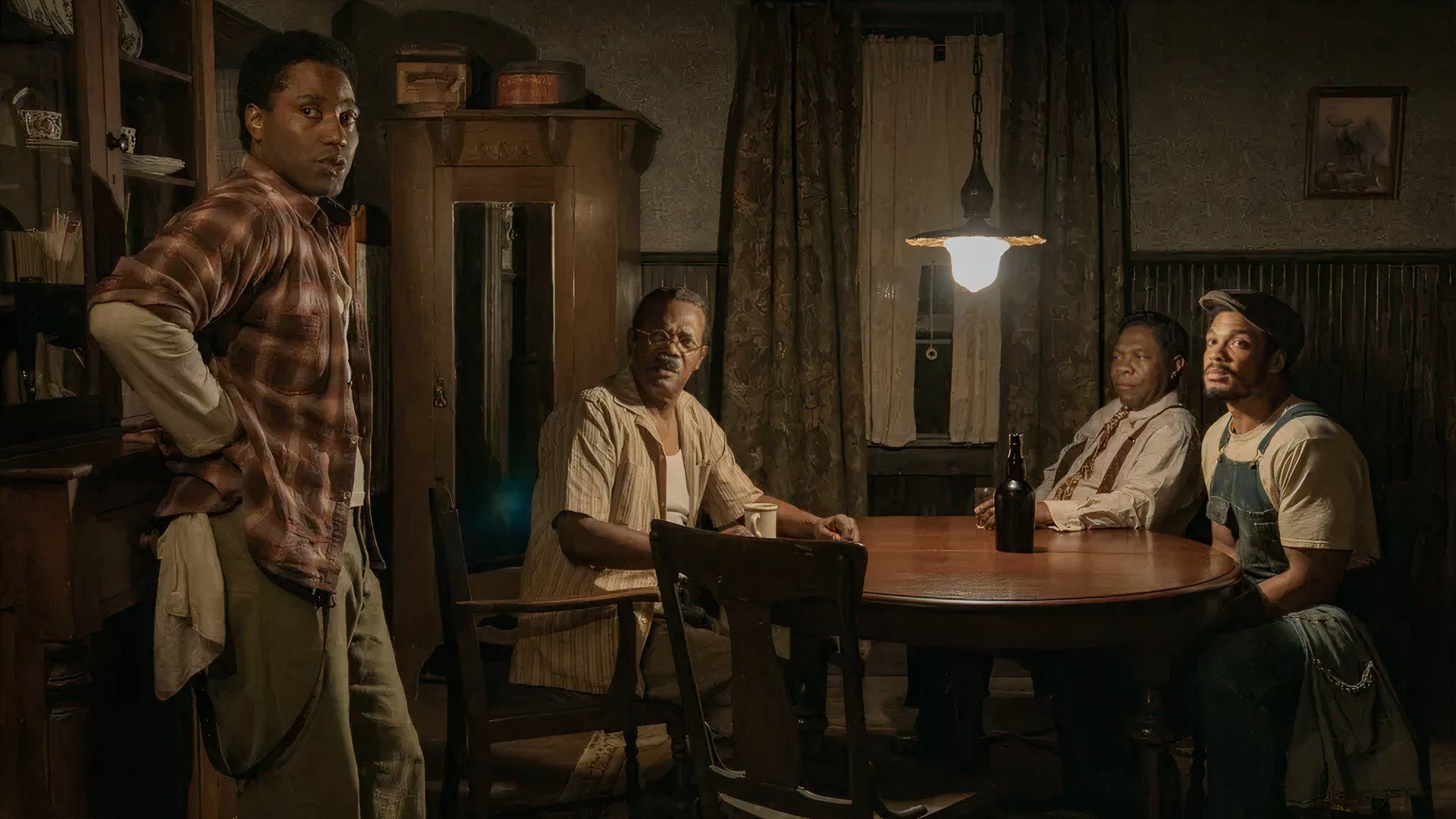The Piano Lesson is yet another adaptation of one of August Wilson’s plays that Denzel Washington, as producer, has successfully shepherded from the stage to the screen, following 2016’s Fences and 2020’s Ma Rainey’s Black Bottom. This time around, it’s a whole-family affair, with sons John David Washington and Malcolm Washington, as actor and director/co-writer respectively, and daughter Katia Washington, as executive producer, on-board. The film made its international premiere at the Toronto International Film Festival, and will release on Netflix on November 22 — and it’s not a film to be missed.
It’s 1936 in The PIano Lesson, and John David is Boy Willie Charles, a boisterous and charismatic man who wants to sell his family’s heirloom piano in order to be able to buy the land upon which his ancestors were once enslaved (the wooden piano, in fact, features carvings of his great-grandparents on it). However, his sister Berniece (Danielle Deadwyler) vehemently protests the idea, not that she uses the piano or even plays it.
Berniece lives with their Uncle Doaker (played by Samuel L. Jackson), who tries his best to mediate between the siblings. As Boy Willie and Berniece go back and forth like any siblings would, a ghost threatens their home, forcing the Charles family to choose between letting go (and finally moving on) or succumbing to darkness.
An Exceptional Directorial Debut from Malcolm Washington
It’s no easy feat adapting a story meant for the stage to the screen, let alone one written by a great American playwright. Indeed, Wilson’s work and legacy are singular, chronicling the light, the dark, and the shades in between of the Black American experience of the 20th Century with equal parts humor, heart, grief, and tragedy. These are the same ingredients that make The Piano Lesson a particularly special achievement from first-time feature director Malcolm Washington: Malcolm rises to the challenge of capturing the soul of Wilson’s original work, and, in doing so, delivers an exceptional film for new audiences who might be encountering the playwright’s words for the very first time.
Staying true to its stage roots, The Piano Lesson predominantly takes place in a single location, which, in a different kind of film, might have felt gimmicky, but here feels most appropriate — there’s life in every corner of the Charles family’s house. Production designer David J. Bomba’s work here is as important as it is exquisite, the textures and textiles of the home possessing a lived-in quality that invites curiosity and demonstrates care.
Michael Gioulakis’ cinematography and Leslie Jones’ seamless editing also enliven the home, keeping up with the characters’ ever-changing perspectives and giving us something new to consider with every scene. Together, these artisans capably transform a play into a real film.
Danielle Deadwyler Stands Out in an Incredible Cast
The biggest draw for The Piano Lesson, of course, is the incredible cast that Malcolm has rounded up to portray the Charles family. John David brings a forward-thinking Boy Willie to life, and though his performance sometimes seems to rely too much on accent and voice, his charisma is infectious. Like most determined sons of the family, he pushes the other members to imagine a brighter future.
That being said, the other actors often steal the spotlight: Ray Fisher (as Lymon) and Jackson (as Uncle Doaker) bring much-needed levity to the film, but also uplift the emotional stakes just as surely; and Michael Potts, as Wining Boy Charles, commands your attention. (It’s especially full-circle to see Jackson here, as he originated the role of Boy Willie on Broadway in 1990.)
Ultimately, it’s Deadwyler who steals the film. It’s easy to love her the instant she enters the scene. She may be the sole woman voice of the house, but she’s just as loud. Broken and bruised, yet steadfast in her values, Deadwyler paints a vibrant portrait of the pain that Black women have faced (and continue to face) in this country, the emotional burdens they bear in their families, and above all, the fierceness with which they love. She delivers one of the best film performances of the year, and, keeping with The Piano Lesson‘s theme of legacy, Deadwyler has undeniably stamped hers here.
For more information on The Piano Lesson and TIFF, visit the festival website.
